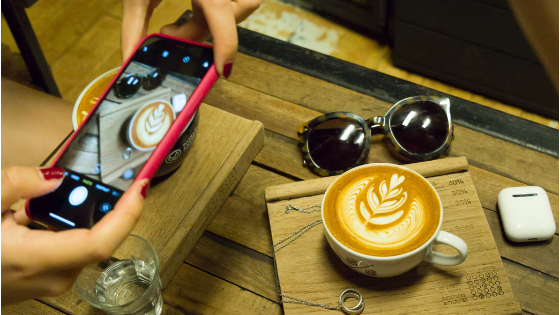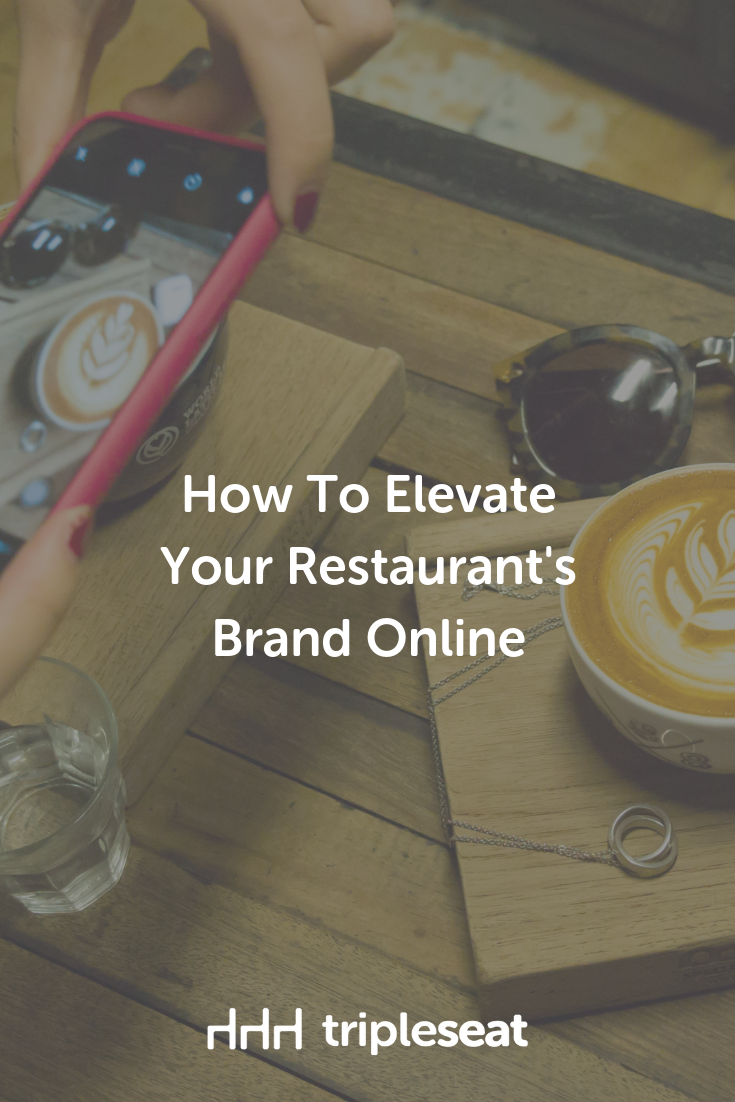How To Elevate Your Restaurant’s Brand Online

Having a large online community can be a blessing and a curse.
Clinton Hall’s five New York City locations have 90,000 followers on social media that drive a lot of new and repeat business to the restaurant.
“I look at some of our dishes, and it’s like George Clooney comes out of the kitchen,” said Telly Hatzigeorgiou, owner of Clinton Hall and restaurant group The Lure Group. “Heads start turning and smartphones come out.”
But it takes a lot of work to keep up the social media success.
“We need to create and invent ourselves every time in order to bring people in and getting them excited,” Hatzigeorgiou said. “It takes collaboration – a lot of work and a lot of research. What are other people doing? I feel like collaborations are important.”
Hatzigeorgiou was part of a recent restaurant industry panel who shared tips and advice at the Digital Marketing 2.0: Elevating Your Brand Online event organized by the New York City Hospitality Alliance. Other panelists included Marie Assante, CEO of Assante Public Relations; Erika London, President of FB Hospitality Group; and moderator Andrew Rigie, Executive Director of the New York City Hospitality Alliance.
The panelists shared their tips and experiences on how to stand out and attract customers on social networks. It’s important to use these tools because of how consumers use them to find restaurants to dine and hold events at, and because they’re becoming more integrated. Someone who sees a post on social media could find themselves on your website or portal of one of your restaurant technology tools in just a few clicks.
Start with content
The first step to online marketing success is creating the right content, from posts to videos, to photos, to events. The right content will grab attention, encourage engagement, and get followers to take action and do business with your restaurant.
FB Hospitality Group’s restaurants use a couple of social networks, but has found the most success with Instagram, said London. The content that’s worked for them reflects what their customers are looking for, shows their followers the people behind the business – such as David Bouhadana, the chef and the name behind Sushi by Bou – and gives their followers something of value.
Their most successful content is social media contests. Sushi by Bou has regular giveaways called Bou Island. Followers of their Instagram profile comment on a weekly Bou Island post and tag three friends they would want to be stranded with on Bou Island. A random winner for dinner for four is chosen each week. They get thousands of likes and comments on each post.
“You need to check all the boxes – use all the right hashtags, create interesting content, post enough so you’re active, and develop authentic content about things that are unique to your business,” London said.
You can also consider a public relations agency or consultant to help pitch news reporters and bloggers to write about your restaurant, Assante said. Those articles reach more people when they’re shared on social media.
“We create the content that gets found on the media that goes on social media,” she said. “This content gets differentiated. It’s now not something that people are going past. It’s ‘Hey, that’s a cool place. I need to go there.’”
Build trust with reviews
Every panelist agreed that restaurants should respond to every review, whether they’re positive or negative. Responding shows that you care about customers and that helps to establish trust.
There are some things you should take care of in private when dealing with reviews, Hatzigeorgiou said. There may be sensitive things that you or the reviewer might not want to discuss in public, such as exchanging credit card information if you’re giving the customer a refund. If you’re offering the reviewer an incentive to come back, like a discount or free meal, consider discussing it in private. Some people have written fake reviews to try to get a freebie from the restaurant. If you plan to take the conversation offline, respond publicly by addressing the issue and tell the reviewer that you’d like to discuss the review privately.
“We respond to every review. Once a week we go through the reviews and address all the reviews … we respond to the good and respond to the negative,” he said. “If it’s a negative review, we reinvite them back, we talk to them, we try to remedy the situation.”
Try texting
Restaurants have an advantage when it comes to collecting customer data over other types of businesses. Customers are willing to trade their emails, mailing address, or cell phone number in exchange for making a reservation or opting into an email list that provides them with information and special offers.
One of London’s restaurants gives customers a free shot at the bar if they provide their phone number and email address. Another location only does reservations via text. London’s company targets those customers with text marketing, but only saves it for important messages and incentives. They’ve found that text blasting is slightly more effective than emails.
“We try hard not to spam people. We balance it out, like texting them about a new location party. We give them something that they actually want,” she said.
Consider inviting influencers
The panel recommended by working with influencers — social media personalities who focus on a lifestyle niche and have thousands of followers. If an influencer talks about your restaurant online, their larger audience becomes more aware of your brand and may be your next customers.
It’s important to do some research and vetting before working with influencers and make sure their content and audience is a good fit with who your restaurant wants to reach. Influencers will ask for free meals or other compensation in exchange for posting about your restaurant, but compensation varies depending on who the person is. It’s also helpful to be clear about what your restaurant wants from the influencer — a blog post, a video, a photo, or another type of content — when beginning the relationship so you can get the outcome you want.
“I think they definitely help with brand awareness,” Assante said. “If they have hundreds of thousands of followers, it matters.”
Take your marketing one step at a time
These tips may seem overwhelming, but they come from experts who have been marketing for years and have had lots of trial and error to discover what works best for them. If you’re not sure what step to take next to elevate your brand, choose one of the options above that are easier or more practical for you to work with, test it, learn from the test, and apply the lessons you learned before trying it again. Once you’ve mastered that practice, try another suggestion. It will take time, but you will develop a marketing strategy that works best for you, your restaurant, and your customers, and drives more business.


